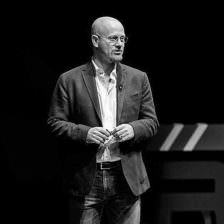“Having two identities for yourself is an example of a lack of integrity.” – Mark Zuckerberg | via Facebook Comments Expose a Flaw in Zuckerberg’s Vision.
Of course, this assumes that your two identities don’t share the same level of integrity, which is a bad assumption. I approach business conversations with the same level of integrity that I approach personal conversations, they’re just different.
I’ve always posted comments as myself all over the web, so Facebook’s new commenting system really has no bearing on how or where I comment. but I have never automatically shared those comments to my Facebook wall or my Twitter stream. And it has nothing to do with integrity. It has to do with interest. I don’t think my friends and family care about a lot of the things I comment on. I don’t want to be forced to share that with them. I want to be able to choose when and where my comments are shared. And that has nothing to do with authenticity.

AS a testament to your comments Jeff, I started to share your post on Facebook, thinking I would be allowed to share it as Rialty Real Estate (my business page). It would not let me do that, instead forcing me to switch my identity back to Matt Reyes… at which time I lost interest in sharing it. I don’t want to share it as Matt Reyes, I want to share it as Matt Reyes with Rialty Real Estate.
Yep. Perfect example. Your desire to share it in that way has nothing to do with integrity or authenticity.
I’m not sure I disagree with Zuckerberg, but it may just be semantics.
I have one identity: Jeff Hester. I expose different dimensions or facets of who I am to different groups. On LinkedIn, what I share is professional in nature, and relevant to people in the context of work.
On Flickr, I share photos, and even there I’ve adjusted a bit over time. I used to share everything, but now I mainly share photos that will be interesting to my photographer friends.
On Twitter, I maintain several accounts, but I don’t consider these multiple “identities.” I make no attempt to conceal the fact that I have these accounts. They exist for the convenience of the people I interact with. So I use @theSoCalHiker to share hiking and backpacking tweets with my hiking friends, and I use @jeffhester to focus on social media, web development and knowledge management.
On Facebook, I tend to share more personally, although I’m not a very active Facebook user. This is where it’s easiest for me to connect with my friends and family.
These aren’t multiple identities — they are multiple accounts that each serve a different purpose. If you were to aggregate them all you would get a more complete picture of who I am, but none of them are any less “authentic” for their focus.
Of course, Zuckerberg probably thinks our Facebook identity should be our one-and-only identity, and everything else should tie into that. While I can appreciate his business strategy, I’m less enthusiastic about putting all my eggs in one basket. Besides, not everyone likes eggs.
“If you were to aggregate them all you would get a more complete picture of who I am, but none of them are any less “authentic” for their focus.” I agree. I believe Zuckerberg wants to “force” that aggregation into Facebook.
No doubt. And no thanks, Mark.